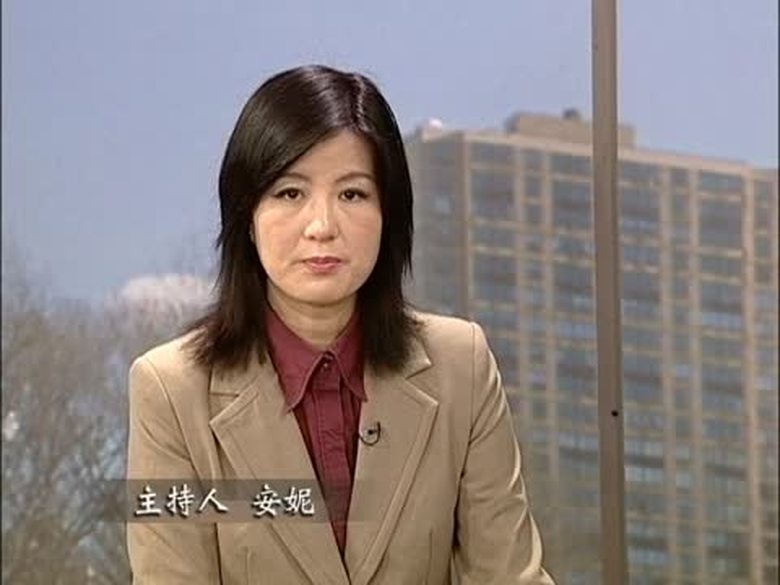【新唐人2011年5月30日訊】連日來,內蒙古牧民對當局抗議不斷,當地局勢持續緊張。為防止抗議浪潮進一步擴大,當局派出大批軍警對部分地區實行軍管戒嚴,並抓捕數十人。國際人權組織對此非常關注,呼籲中共當局尊重言論和集會自由,不要進行暴力鎮壓。
從5月22號開始,內蒙古連續幾天出現抗議和示威活動,上千抗議民眾一度與前來鎮壓的武警形成對峙。5月24號,錫林浩特市多所學校的2000多名學生,更是衝破校方封鎖,走上街頭,呼籲當局公正處理兩起血案,“尊重牧民的利益和人權”。
5月26號,西烏旗、鑲黃旗、東烏旗等地都出現民眾遊行抗議。在當局鎮壓中,一輛汽車故意衝向抗議人群,撞傷多名女學生,其中一人雙腿被壓成粉碎性骨折,另一女生腳部粉碎性骨折。
在持續的抗議活動中,一些示威民眾被當局抓捕。5月27號,當局開始在西烏旗和正鑲藍旗等地實行軍管戒嚴,並強制學生“週末不准回家,繼續上課。”當局還關閉互聯網聊天室。
但正鑲藍旗300多民眾不顧禁令,依然走上街頭,並衝過武警組成的盾牌牆,直衝政府大門,過程中有約40人被抓捕。
在內蒙古的緊張局勢不斷升級的情況下,國際人權組織“大赦國際”亞太事務負責人巴伯爾發表聲明說:中共當局必須尊重抗議民眾的言論和集會自由,不要暴力鎮壓。她強調,由於中共曾嚴厲鎮壓新疆和西藏等地區的抗議活動,所以外界很擔心。
據了解,中國有600萬蒙古族人口。長期以來,蒙古人在政治和文化上受到中共當局的壓制。
公民力量執行主席、哈佛大學高級研究員楊建利博士認為,由於中共的民族政策,中國的民族問題非常嚴重,他說:中國沒有一個少數民族地區實行了自治,而且還遭到了文化滅絕。
楊建利:“內蒙古現在的人口,漢人已經佔了80%,它的語言現在也完全處於一種劣勢。隨著整個中華人民共和國境內的其他人權問題不斷浮上檯面,這個民族的壓迫,還有文化的滅絕問題也會不斷的暴露出來,今天我們只是看到其中一個事件而已。”
據傳,當地民眾計劃在5月30號,於呼和浩特市進行大規模抗議。
楊建利:“未來的大規模抗議活動,應該不是有意的號召出來的,而是一種自發的。就是一些關鍵性的事件,這個事件一開始看起來非常小,但是最後它成為一個爆發點。”
《BBC》中文網報導,西藏和新疆的民族問題吸引了許多國際關注,但是內蒙古民眾的困境卻沒有得到相應的國際關注。
楊建利則認為,中共覺得國際社會對它沒有辦法,所以對國際上的很多批評無動於衷。
楊建利:“我覺得國際社會不僅僅要呼籲,也應該尋找一些國際社會上的事——能夠對中國(共)政府進行一些懲罰的,真正能讓它感覺到有壓力的一些方式。比如說,從聯合國人權理事會裡把它開除出去。”
楊建利表示,中共當局的維穩費用已經超過軍費,中共已經把大部分的資源都壓到了第一線。而《東方日報》也報導說,在當局嚴控之下,28號之後,內蒙暫時沒有再傳出民眾聚集示威的消息。
新唐人記者常春、李謙、周天採訪報導。
====
Inner Mongolia』 Protests Continue
In recent days, Inner Mongolian herders
continued protesting; authorities dispatched police
and a large army, declared martial law, and arrested
dozens to control the protests』 wave.
Int』l human rights organizations are very concerned
and call on China to respect freedom of speech
and assembly, not to carry out a violent crackdown.
Since May 22, protests and demonstrations
have been erupting in Inner Mongolia, thousands
are squaring off with armed police.
On May 24, about 2000 students from the city
of Xilinhot disregarded the school』s attempts
to prevent them from leaving the school.
The students came out to demonstrate,
and called for resolving Mo Rigen』s murder case,
the violent "beating-to-death" incident by coal miners.
They demanded authorities
"respect the rights and interests of herders."
On May 26, people went on protests in Xiwuqi,
Xianghuangqi, Dongwuqi local areas.
During police crackdown, a car deliberately drove
toward protesters, injuring a few female students.
Two girls had fractured legs and feet.
Some demonstrators were arrested by authorities.
On May 27, authorities started military control in
Xiwuqi and Xianghuangqi areas, confining students
to "staying in school and continue classes
on weekends." Online forums are shut down.
More than 300 people in Zhengxianglanqi
crossed through the armed police shield wall,
straight into the gate of the government building.
Around 40 people were arrested.
Catherine Barber, Amnesty International』s
Asia Pacific deputy director said in a statement:
"Chinese authorities must respect freedom of speech
and assembly for protesters, not to carry out
a violent crackdown."
She stressed that, given the heavy repression
of similar protesters in Xinjiang and Tibet,
there are real grounds for concern about the situation
in Inner Mongolia.
here are 6 million ethnic Mongolian in China.
For a long time, the Mongols have been suppressed
in politics and cultural areas by Chinese authorities.
CEO of Citizen Power, a senior fellow at Harvard
University, Dr. Yang Jianli, said that China』s ethnic
problem is very serious and a result of the CCP』s
(Chinese Communist Party) ethnic policy.
CCP has never given autonomy to any minority
ethnic groups and their culture was destroyed.
Yang Jianli: "Han Chinese have accounted for 80%
of the Inner Mongolia population, which language
is completely in a disadvantageous situation.
With domestic and other human rights issues rising,
ethnic repression and issues of culture extinction
are also exposed. Today we see one such incident."
Bloggers are calling for a large-scale protest
in the capital city of Hohhot on May 30.
Yang Jianli: "Large-scale protests in the future
will be spontaneous rather than calling with intention.
These events at first appear very small,
but in the end become a flashpoint."
BBC Chinese network reported that ethnic problems
in Tibet and Xinjiang attract worldwide attention,
but the plight of the Inner Mongolia people
has not been given any international attention.
Dr. Yang Jianli believes that CCP didn』t respond
to criticism from the international Community (IC)
because it knew that the IC could not do anything.
Yang Jianli: "I think that the IC not only needs
to call out, but to also pressure CCP by inflicting
punishment, such as disqualifying it
from the United Nations Human Rights Council."
He also stressed that the CCP 『s internal security
spending has surpassed its military spending.
CCP has moved most of the capital resources
to the front line. Oriental Daily also claimed
there were no reports on protests in Inner Mongolia
after May 28, due to the CCP』s tight security.
NTD reporters Chang Chun, Li Qian and Zhou Tian.
























